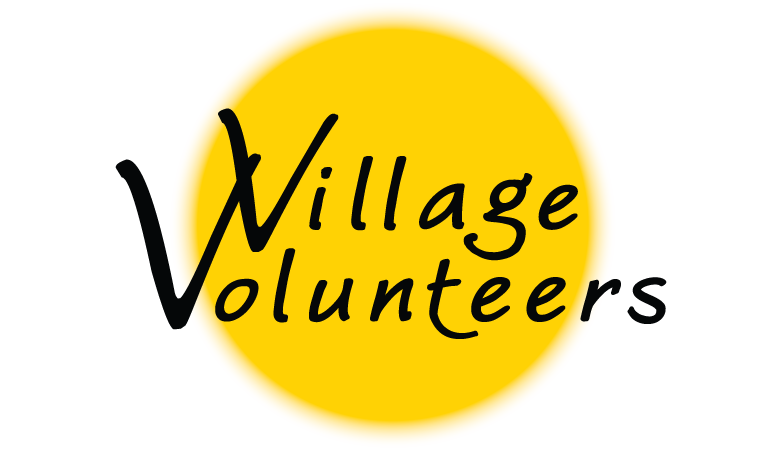Over the years Village Volunteers’ partnering organizations have shared their knowledge and experience of working with volunteers, and this has helped us greatly in refining our volunteer program. We’ve come to the core understanding that through our partner programs, volunteers have the opportunity to offer a hand in friendship and partnership by sharing in the work of local communities. And in this way, they champion the cause of compassionate global citizenry. Through collaboration with local communities on a wide variety of projects, volunteers strengthen ties across the boundaries of international borders, race, gender, age, and culture.
Practical guideline #1: Leave preconceived notions at home, just pack an open mind and an open heart
It’s best if a volunteer approaches international service experience with an open mind and heart, see yourself as a student and a helper rather than a leader. It’s helpful if you are mindful of the realistic limits and abilities to solve a community’s problems, and also understands the limits of any international group’s ability to solve local problems with the solutions that work well at home. It’s true that sometimes such an approach can be frustrating because quite often volunteers feel that they can offer a squillion solutions to a village’s problems. But such feelings are usually deceptive. A community’s problems are often complex and interwoven with its cultural practices, beliefs, and history. Answers are rarely found on the surface, or developed in a matter of weeks. Come without preconceived ideas, and your opportunity to learn will be greatly enhanced.
Practical guideline #2: Take time to breathe it all in, be patient
While it’s super important for a volunteer to feel engaged in the community, it’s best to bear in mind that the pace of life is typically much slower in village communities. And there is much value in simply taking time to absorb the environment and learn from those around. It isn’t the best practice for a volunteer to expect to leave a fast-paced life, enter a village, and feel immediately useful and fully engaged. Be patient. Try not to get frustrated with the slow pace. Though you may feel that you aren’t “making a difference,” know that your very presence is valued, and that does make a difference.
Practical guideline #3: Work together
Village Volunteers is very conscious of not assuming the responsibility of managing specific projects from a distance; much freedom is given to the volunteer and the Program Director in identifying your activities. It is in working together that mutual understanding is rooted.
Practical guideline #4: Sometimes plans change
It’s helpful for a volunteer to be tolerant and understanding of conditions that may arise during your stay. At any moment, the best-laid plan may have to be put aside because of a death in the community, inclement weather, lack of funding or a multitude of other factors. Life in a rural setting is unpredictable, particularly to those who are just visiting. Sometimes volunteers feel the need to be in control, but it’s in everyone’s interest to manage those impulses. And often a volunteer may believe they are helping, but in truth may be taking someone else’s opportunity to be empowered and have “ownership.” The benefits of encouraging local ownership are a greater peace of mind and appreciation for the intangible contributions you make to the community.
Joshua Machinga, Director of Common Ground for Africa said it right and said it well:
“Come with an open mind, ready to absorb a flood of new information and new frame of reference. Leave your expectations at home. Observe without judgment until you fully understand all the factors. If something strikes you as being “backwards”, objectively consider why it is acceptable in this culture. You will probably find valid reasons. I do recommend that during your first few weeks or months simply observe, learn, and try to understand the culture. See how things “work” here. Try to remember that there is never just one right way to do something. You most likely will see many things that are considered backward, but are common and appropriate here. Just remember that often there is no right or wrong.
Leave your material possessions at home. You will need very little of them here. What you will need is natural curiosity, a positive attitude, plenty of patience and a willingness to help those in need. You certainly will have to deal with frustrations of development work. But a generous smile to warmly offer, the desire to accept many friendships, and an untiring sense of humor will assure you that a trip of a lifetime is ahead of you. You will never see the world the same way. It is up to you to make the most of this valuable experience that you have created!”
